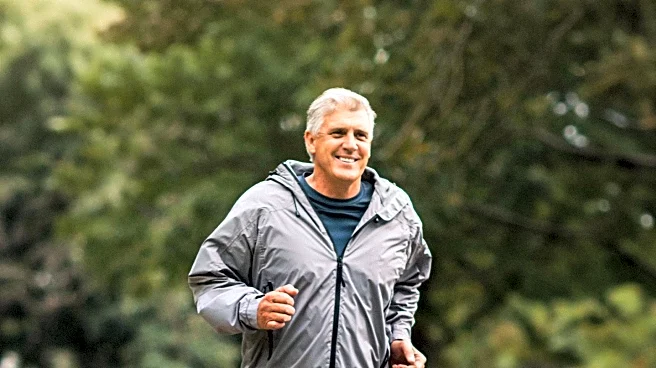What's Happening?
A recent study has found that regular endurance training significantly improves immune function in older adults. The research, conducted by an international team of scientists, focused on natural killer
(NK) cells, which are crucial for the body's defense against viruses and abnormal cells. Participants who engaged in long-term endurance exercises, such as running and cycling, showed more adaptable NK cells with better energy efficiency and less inflammation. The study highlights the positive impact of physical activity on immune health, particularly in older adults, and suggests that exercise can 'train' the immune system to respond more effectively to inflammatory challenges.
Why It's Important?
The findings underscore the importance of regular physical activity in promoting healthy aging and enhancing immune function. As the U.S. population ages, understanding how lifestyle factors like exercise can mitigate age-related health issues becomes increasingly vital. Improved immune function can lead to better overall health outcomes, reducing the risk of chronic diseases associated with inflammation. This research may influence public health policies and encourage the integration of endurance training into fitness programs for older adults, potentially reducing healthcare costs and improving quality of life.
What's Next?
Further research may explore the specific mechanisms by which endurance training enhances immune function and identify optimal exercise regimens for different age groups. Health organizations and policymakers might consider promoting endurance exercises as part of preventive health strategies for aging populations. Additionally, fitness programs tailored to older adults could incorporate these findings to maximize health benefits and support immune health.
Beyond the Headlines
The study also raises questions about the broader implications of exercise on immune health across different demographics. It suggests potential benefits for younger individuals and those with sedentary lifestyles, highlighting the need for inclusive fitness initiatives. Moreover, the research could inspire further exploration into the relationship between exercise and other aspects of health, such as mental well-being and cognitive function.










